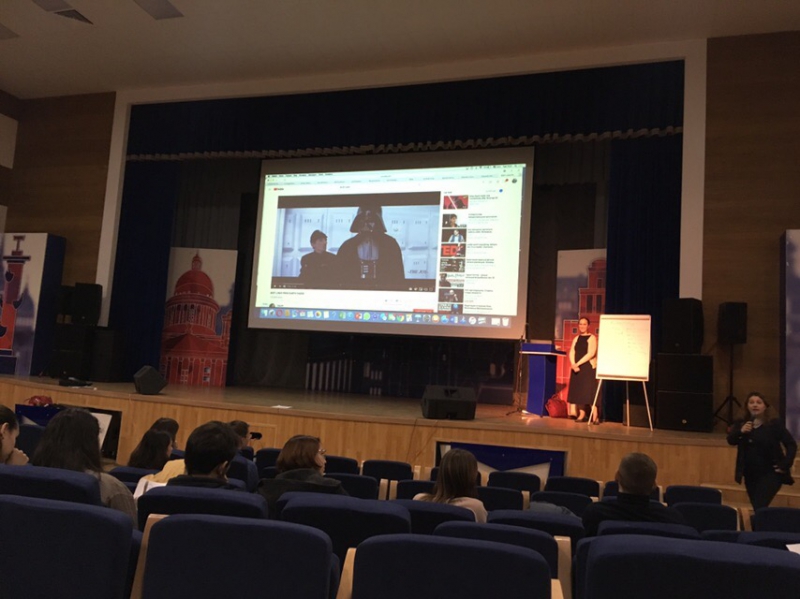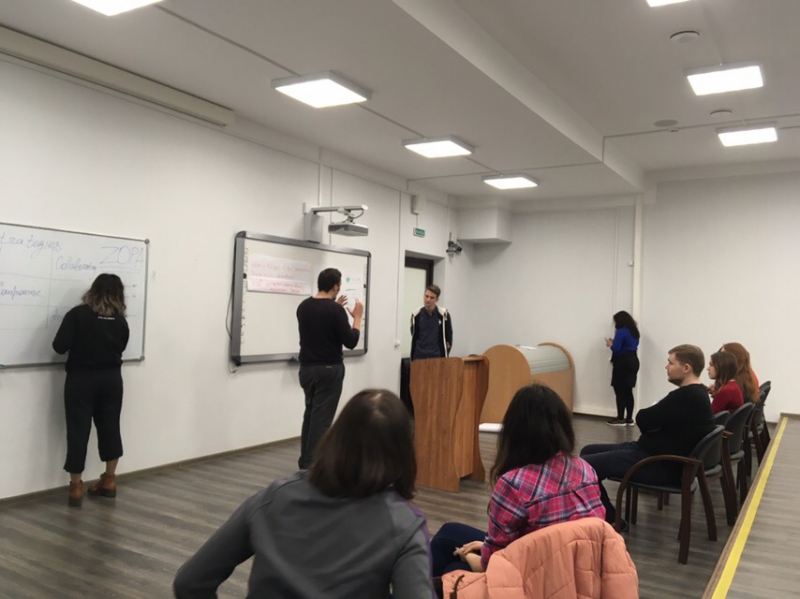Master's student
My Experience Studying Soft Skills at ITMO
This year, the first year Master's students at ITMO University were offered to choose one subject from the soft skills block of disciplines. Soft skills is an obligatory part of the educational program, which are aimed at improving skills that are not directly related to your major but essential for an successful career. Six disciplines were offered in both Russian and English:

- Personal efficiency and time management (in Russian)
- Efficient team management (in Russian)
- Management of scientific research (in Russian)
- Negotiation, influence and conflict management (in English)
- Emotional intelligence (in English)
- Internationalization of research (in English)
I would like to tell you about my choice of discipline and experience, gained in the process of the course. My choice was the subject — Negotiation, influence and conflict management. This is a modular course containing three webinars and a week of intensives. The list of disciplines contained a lot of attractive titles. But I firmly decided that I would choose from subjects taught in English. Negotiation, influence and conflict management seemed to me the most exciting title. Honestly, I really love scenes from films when the FBI is negotiating with criminals or scenes of defending the accused in court. In addition, I would like to learn how to properly defend my point of view and achieve goals through conversation. That's probably why I chose this course.
Webinars were held on October 29, November 6 and 13. Later all webinars were available for repetition or mastering basic terms and knowledge. From November 17, the intensives began. Each day began with lectures, where teachers explained about strategies, influence, areas of interest, and the use of game theory in negotiations. Then the students used this knowledge in practice: they solved cases, examined various situations, accepting various parties to the conflict. I especially liked that the lectures used fragments from movies to explain the material. For example, have you thought that Master Yoda from "Star Wars" uses avoidance strategy in many situations? Or that scientist John Forbes Nash in the movie "Beautiful Mind" uses game theory to show his friends how best to meet girls?

In all negotiations it is very important to correctly define the pie. Pie is a subject of negotiation. What we want to get from a joint venture or business. In this course, they explain how to correctly define the pie and convince the interlocutor about what proportion you deserve and justify why. At the same time, it is necessary to use different strategies, show empathy and paraphrasing. This is what we did in practice. There were many different cases and situations where everyone took a certain side. For example, the invitation of a middle-aged star Sally Soprano to the Opera Theater to perform or the union of two newspapers.

After the end of the negotiations of each case, the teacher discussed with the students what strategies were used, whether all interests were taken into account, whether the parties achieved their goals, etc.
Even before the start of the course, it was proposed to take the Thomas-Kilmann test. This is a test that determines which strategy a person is more inclined to:
- Competing
- Avoiding
- Accommodating
- Collaborating
- Compromising

The test contains 30 questions, answering which and calculating the number of definite answers, you will know which negotiating strategy you are inclined to.
At the last lecture, negotiations were held on the construction of a port. All students were divided into 6 groups, representing different organizations and people:
- The governor of the state in which the construction of the port will take place;
- A company that wants to build this port
- Association of workers of this state
- Other coast ports
- Federal Department of Coastal Resources
- Environmental league
Moreover, each side did not know the connections and all the interests of others. Therefore, it was necessary to conduct these negotiations. At the end, the parties came to a single agreement on the construction of the port.
In conclusion, I want to say that this was an interesting course that gave a lot of knowledge about negotiating and managing conflict. The teachers explained quite clearly the material and supported it with examples, analyzed the tasks and analyzed them with the students. I think that it’s quite important for me and everyone to know how to negotiate, because we do it every day. To justify your point of view, to find a key to others people's minds, to negotiate with the most stubborn and aggressive ones. I believe that the launch of this course at our university was successful, and I am sure that next year the course will be even better.
As for the whole block of the disciplines: in any profession, business or undertaking you should be flexible and as open as possible. These subjects help to find solutions in various situations, which we are faced with every day. For example, organizing your working day or day of your team, to make research wider, using foreign sources and references, for publishing in scientific journals. From my perspective, every ITMO student acquires valuable knowledge in different fields and will be able to become a versatile specialist.
